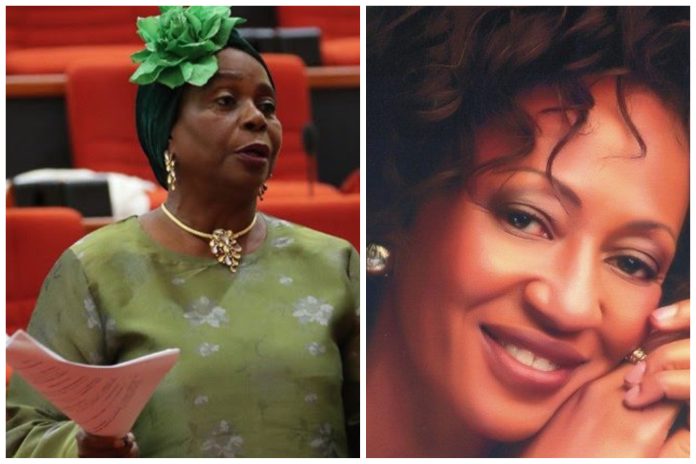...To get all news updates, Join our WhatsApp Group (Click Here)
Also Join our WhatsApp Channel (Click Here)
It doesn’t look like there is an end in sight to the rancor that has enveloped 14 contenders, eight of who are women, over who finally occupies the Ekiti Government House sometime this year. About two months ago, It was reported that one of those eyeing the government house, socialite and philanthropist, Princess Adekemi Adewunmi, was being threatened. Adekemi, the president of Soroptimist International and the Women Initiative for Advocacy, Social Justice and Empowerment, among many other organizations and groups that she heads, is the widow of a former Chief of Air Staff, late Air Vice Marshal Ibrahim Alfa.
It was reported that the mother of two had been receiving death threats from different quarters since she announced her governorship ambition. One of those issuing threats to her is her distant cousin, who is also in the race for the governorship position. This cousin of hers allegedly has the full backing and support of a controversial former governor of the state. Joining the fray of recent, to allegedly discredit and threaten her, is Senator Biodun Olujimi, the senator currently representing Ekiti South Senatorial District and Minority Leader in the Senate.
According to Adekemi, Olujimi called her several times on January 1, 2022 to issue fresh threats to her, but when she refused to answer the calls, aware of the caller’s intentions and not desiring to start the New Year on a negative note, Olujimi allegedly reached out to their mutual friend and allegedly asked the mutual friend to warn Adekemi to behave herself or she would allegedly go both physical and spiritual with her. Olujimi allegedly referred to herself as a python that swallows her meal (Adekemi).
But Adekemi has refused to be threatened, referring to herself as an anaconda that plays by the rule. She accused Olujimi of hating her with passion and only mouthing support for women in Ekiti. She described Olujimi as the only woman from Ekiti State who plays politics at the national level, placing her own children and immediate relations in multinational companies and leaving those who are not related to her by blood to rot for all she cares.
Adekemi inferred that Olujimi often pretends to empower women usually and reluctantly with the party’s money allocated to her and never with her personal funds. She accused Olujimi of building palatial mansions all over Abuja and Lagos for herself and giving handouts to members of her constituency in order to pave the way for an automatic ticket of another four years in the Senate. A bargain, Adekemi called it.
Adekemi claimed to have been in politics as far back as the first tenure of former President Olusegun Obasanjo and was even instrumental to dousing the tension between Obasanjo and this controversial former governor of the state, when he first indicated interest in occupying the Government House. While she refers to herself as a staunch and founding member of the Peoples Democratic Party, she referred to Olujimi as a politician without principles, who not only jumped ship from another party to meet her in PDP, but also worked against the party in the state in the 2019 general election.
How did the relationship between both women become so bad? Apparently, according to Adekemi, Olujimi allegedly arrogated powers to herself and insisted on determining who takes what position in Ekiti State, including who will emerge the consensus candidate at the PDP primaries, scheduled for January 26, to eventually occupy Ekiti Government House. Olujimi allegedly boasted that Ekiti State belongs to herself and this former controversal governor and that anyone, who fails to fall in line with her, will have themselves to blame as they will see nothing to hold on to allegedly, not even crumbs.
Well, the battle line is drawn. Adekemi has vowed that she won’t be caged, frustrated or hounded out of Ekiti State. She insists that Ekiti State does not belong to anyone’s pockets and that the same set of people, who have been in office since 2003, need to move out of the way for others. She has also vowed to unlock that cage and set Ekiti State free from bondage, in or out of office.
You can get every of our news as soon as they drop on WhatsApp ...To get all news updates, Join our WhatsApp Group (Click Here)
Also Join our WhatsApp Channel (Click Here)








